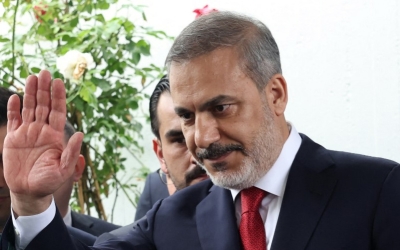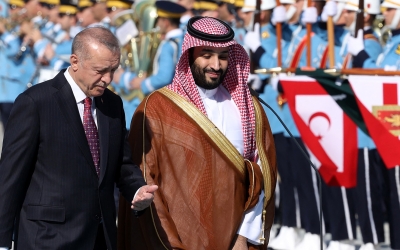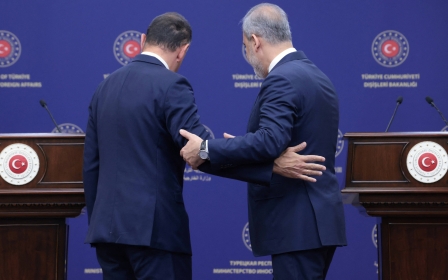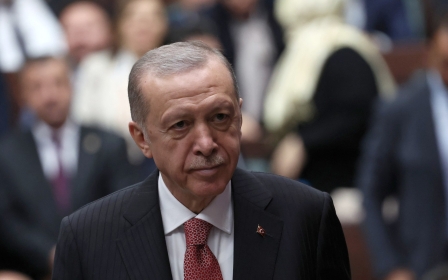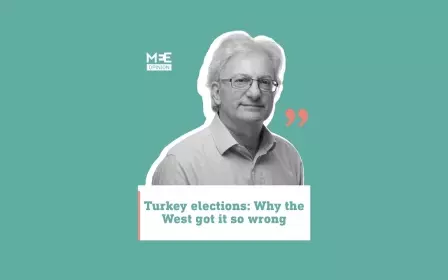Is Turkey replacing France in Francophone West Africa?

Given the military coups that have occurred in West Africa in recent years - in Mali in August 2020 and May 2021, Guinea in September 2021, Burkina Faso in January and September 2022, and most recently in Niger in July 2023 - it is unsurprising that many analysts are focusing on Turkey.
In the past decade, Turkey has increased its influence in West Africa, ranging from trade to political ties, and from defence industry collaboration to education and development, making Ankara a crucial friend for Francophone Africa.
But what impact are these coups having on Ankara's regional relations? Is Turkey gaining ground in West Africa due to France's declining influence?
First and foremost, we should reject the claim that these military coups are to blame for France's declining power. In West Africa, France has long been losing ground, even before the military takeovers.
Anti-French sentiment is merely another means for putschists to gain public support and legitimacy.
New MEE newsletter: Jerusalem Dispatch
Sign up to get the latest insights and analysis on Israel-Palestine, alongside Turkey Unpacked and other MEE newsletters
It can subtly help win over opinion in the wider world by giving the impression that these nations are regaining their independence from France.
Anti-French sentiment is one of the most fundamental areas of agreement among all regional social groups, though its scale and intensity varies from country to country. By tapping into it, the coup leaders can position themselves in the public's imagination as at least being one of their own.
Cautious diplomat
Second, the CFA franc, backed by France and pegged to the euro, is the official currency of 14 African nations, including Niger, Mali, Gabon and Burkina Faso.
In exchange, France demands that these nations maintain half of their foreign exchange reserves in the French treasury. This financial tie, which will not simply end, allows Paris to still exert influence over the economic and political affairs of CFA franc countries.
Third, the Turkish elections in May opened a new chapter in Turkish foreign policy with western nations, with President Recep Tayyip Erdogan seemingly no longer as interested in upsetting the West, including France.
Thus, Turkey has been keeping a relatively low profile when it comes to these West African military coups.
Erdogan is playing the cautious diplomat, even though he warned against "a military intervention in Niger" for the potential of it creating "instability in the region" and demanded a return to "constitutional order and a democratic administration" in the region.
Since Hakan Fidan became Turkish foreign minister, Ankara appears to be paying more attention to its immediate neighbours, especially Syria and Iraq, and the significant security threats emanating from those borders.
The various foreign trips and meetings Fidan has conducted over the past three months with officials from Iraq, Iran, Ukraine, Greece, Bulgaria and Azerbaijan have amply demonstrated this.
While not implying that Turkey is losing interest in distant regions, the fact that it did not show significant interest in last month's Brics summit in Johannesburg is telling. Turkish foreign policy is prioritising pressing regional issues, including terrorism, border security and the war in Ukraine to project a more stable and influential image in a changing and turbulent global politic.
In the last decade, Turkey's relations with West Africa have become multifaceted and multilayered, especially in economic, military and political terms.
There are various levels of military collaboration with a number of West African nations, including the education and training of military personnel. To address the economic and sociological causes of violent extremism in West Africa, the Turkish Cooperation and Coordination Agency manages projects in a number of countries, including Senegal, Chad, Niger and Togo, and has 22 coordinating offices spread out across the continent.
A low-key manner
Turkey is an increasingly important actor in providing West Africa with defence equipment. Turkey has signed military framework agreements that cover training, technical and scientific cooperation with more than 30 African countries - including those of the Sahel region.
Ankara is not necessarily replacing existing arms suppliers by doing this; rather, it is creating new spaces for itself.
Since the 2016 failed military coup in Turkey, Ankara's conflict with the Gulen movement's presence in those nations has garnered increased support. The closure of schools affiliated with the movement has been among the top issues Erdogan has raised in his meetings with African leaders since 2016.
The Gulen movement had a strong base in Francophone Africa, but since the failed 2016 coup its schools have been closed down or handed over to the Turkish Maarif Foundation, a government foundation that operates schools on behalf of Turkey abroad. The foundation now runs schools in 26 nations across Africa, including Niger, Chad, Gabon, Cameroon, Mali, Democratic Republic of the Congo, Ivory Coast and Guinea.
That these nations supported Ankara during the 2016 coup while many western countries and Anglophone African nations took a wait-and-see approach, means French-speaking Africa is seen as a loyal ally in the eyes of Turkey's security and foreign policy circles.
In short, coup leaders may exploit anti-imperialist rhetoric to win support, but neither Turkey nor any other nation is yet able to take the role of France in the region.
Additionally, Turkey has shown no interest in taking on such a role. Instead, Ankara prefers to conduct the deepening of its connections with countries in West Africa in a low-key manner, without getting involved in the domestic politics of the coup countries.
The views expressed in this article belong to the author and do not necessarily reflect the editorial policy of Middle East Eye.
Middle East Eye delivers independent and unrivalled coverage and analysis of the Middle East, North Africa and beyond. To learn more about republishing this content and the associated fees, please fill out this form. More about MEE can be found here.



